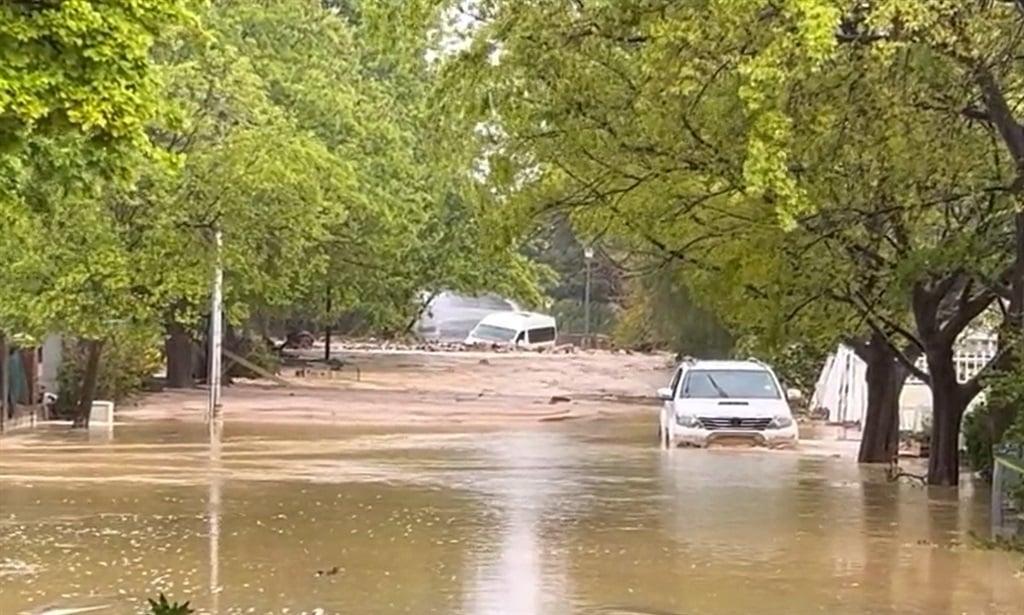Africa-Press – South-Africa. Western Cape tourism and agriculture businesses are likely to feel the effects of the recent downours in the province once the flooding has subsided.
The provincial government has estimated that the storm caused damage to the tune of nearly R1.4 billion.
The rainfall, accompanied by strong winds and high waves, occurred while the provincial government was in the process of requesting a provincial state of disaster declaration in the hope that it would unlock around R700 million in relief funds after flooding caused extensive damages in May and June.
The area impacted the most by the recent floods was the Cape Winelands, with an initial estimate of R250 million in damage to infrastructure.
Cape Winelands District Municipality Mayor Elna von Schlicht said it was difficult to put a price on the impact on the local economy because assessments were still under way.
But she added that the flooding was “devastating on many levels”, but the immediate impact was felt in the agriculture and tourism sectors.
According to Von Schlicht, the damage to infrastructure was likely to significantly impact local farmers, because damaged roads would hamper their ability to transport their produce.
“It affects harvesting farmers who are transporting their produce and farmworkers. For example, a local blueberry farm could transport between 400 and 600 people to the farm for every day of the harvest. A lack of workers impacts how much can be harvested. And this will ultimately affect the farmers’ income,” she said.
Von Schlicht added that there could also be future losses as a result of the heavy rains as seedlings were washed away and buds on orchard trees were damaged. That, she said, could impact the next yield for local farmers.
The tourism industry is also likely to feel the effects of the storm damage, especially guest houses and wedding venues that suffered infrastructure damage, she said.
Marelette Mundey of Montagu-Ashton Tourism said several resorts in the area had been forced to close temporarily to repair damaged infrastructure.
“The temporary closures will have a major impact on employment and how many beds we have available for visitors,” she said.
She added that agri-tourism spots were also been affected, with a number of farms inaccessible due to road damage.
With 20 000 to 30 000 people spending at least one night in the area every month, the loss of accommodation will make it difficult to cater for tourists, especially over the school holidays.
The Overberg was also severely affected by the storm, suffering an initial estimated R130 million infrastructural damage.
Towns in the greater Hermanus area have been left with limited water supply following damage to the water supply network.
The organisers of the Hermanus Whale Festival announced that this year’s festival was cancelled amid the water crisis in the seaside town.
In a statement, the organisers said the decision to cancel was made “after much consideration” and meetings with the municipality.
“A full risk assessment was done, including the water issue, and an evaluation of the potential impact on public health and safety,” the festival’s director said.
“This, together with an assessment of all the variables, prompted the decision to cancel.”
The organisers had not responded to News24’s requests for comment on the economic impact of the festival.
Overberg District Municipality mayor Andries Franken said the festival was one of the events that had to be cancelled in the area.
“It’s difficult to put an exact figure on what we’ve lost and what we’re going to lose,” he said.
“The economic spin-off will probably on be seen in two or three months’ time.”
Franken added that many businesses in towns such as Hermanus and Grabouw had been flooded and were facing the losses that come with damage to property and an inability to trade.
The water crisis in Hermanus has placed businesses under pressure, as those in the hospitality industry or services that require water to operate “can’t do business”.
The agriculture sector has also been severely impacted. Franken said farmers in the district have estimated losses of around R1.4 billion, with many having lost livestock and crops.
He said hundreds of hectares of fields were still underwater on Friday and that grain farmers would most likely lose these crops.
Jacques Moolman, president of the Cape Chamber of Commerce and Industry, said more detailed impact assessments were likely to become available in the next week or two.
“Damages include roads, irrigation and parts of orchards, possible damages to winter grain crops (such as wheat, barley, oats and canola) and livestock,” Moolman said.
“We are particularly concerned about the latest impacts given the fact that they come just three months after the last flooding incident that devastated the citrus-growing areas around Clanwilliam and Citrusdal, as well as the Winelands. Many businesses had barely recovered from the last ordeal, only to be hit again by major damage,” he said.
These natural disasters only add to “financial stresses” linked to the country’s energy and logistics crisis, Moolman added.
“It highlights the urgent need to strengthen our business environment to allow all economic stakeholders to become more resilient in the face of ongoing challenges, whatever they might be,” he said.
For More News And Analysis About South-Africa Follow Africa-Press






